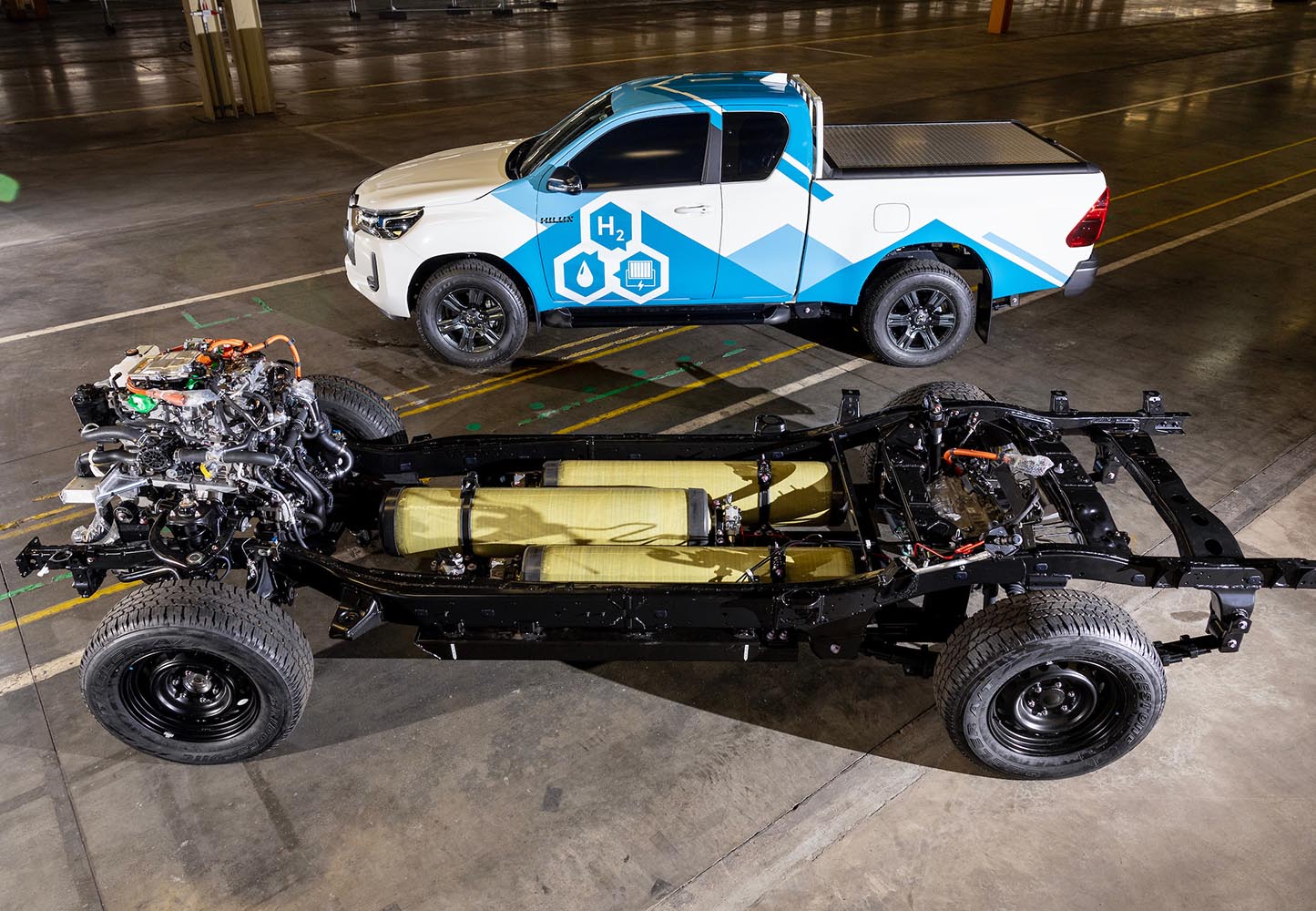
Toyota unveils hydrogen-powered Hilux prototype in Derby, England
In a significant stride towards a sustainable automotive future, Toyota recently showcased a hydrogen fuel cell electric prototype of its iconic Hilux model. The unveiling took place at Toyota Manufacturing UK’s facility in Derby, England.
Toyota’s move aligns with its broader vision of achieving carbon neutrality. The company has been exploring various powertrain solutions, including hybrid electric, plug-in hybrid electric, battery electric, and fuel cell electric, to cater to diverse user requirements and global operating conditions.
The Hilux, renowned for its reliability and durability, is now being tested with a zero-emission fuel cell electric powertrain. This prototype incorporates essential components from the Toyota Mirai sedan, a hydrogen fuel cell vehicle that has been in commercial production for nearly a decade. Notably, the only emission from the fuel cell when the vehicle is in operation is pure water.
The prototype stores hydrogen in three high-pressure fuel tanks, potentially offering a driving range of more than 600 kilometres (km). This range surpasses what most battery electric systems can currently achieve. Additionally, the hybrid battery, which conserves electricity generated by the fuel cell, is strategically placed in the rear load deck to ensure no compromise on cabin space.
This initiative began as a feasibility study in early 2022, conducted jointly by Toyota Manufacturing UK (TMUK) and Toyota Motor Europe. The UK Government, through the Advanced Propulsion Centre, subsequently provided funding. The design and development phase commenced in July 2022, with several consortium partners, including Ricardo, ETL, D2H Advanced Technologies, and Thatcham Research. Toyota Motor Corporation (TMC) also extended its support.
By June 2023, prototype construction was underway at the TMUK facility. Remarkably, the first vehicle was ready within three weeks. Ten such prototypes are expected to be completed by year-end, all of which will undergo extensive testing to ensure they meet the stringent safety and performance standards of a production model.













